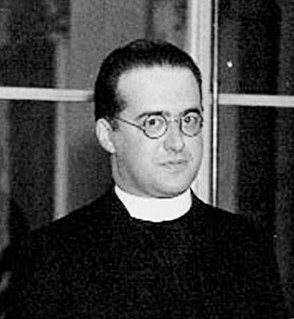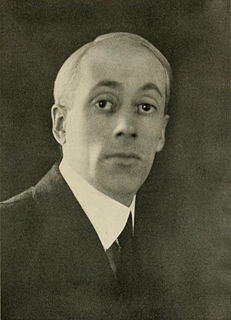A Quote by Bruce Lipton
The planet's hope and salvation lies in the adoption of revolutionary new knowledge being revealed at the frontiers of science.
Related Quotes
Should a priest reject relativity because it contains no authoritative exposition on the doctrine of the Trinity? Once you realize that the Bible does not purport to be a textbook of science, the old controversy between religion and science vanishes . . . The doctrine of the Trinity is much more abstruse than anything in relativity or quantum mechanics; but, being necessary for salvation, the doctrine is stated in the Bible. If the theory of relativity had also been necessary for salvation, it would have been revealed to Saint Paul or to Moses.
The spirit of Christmas lives with us. We are the protectors of the real tradition of Christmas-peace on Earth and Goodwill to all. We are the hope of Man-the only hope. Mankind's salvation lies within our hands. With our tech and ability we can create here on Earth a real heaven where men can be free. In our hands lies the power to restore to Man his determinism and all that he finds good in himself-his honesty, his integrity, and the thrill of being of real help to others. A very Merry Christmas to you all and a bright friendly new year.
In a recent dream, God revealed to me a door leading us into four new hopes that will prepare us to be like those who were healed and strengthened in hope and able to stand when the lightning bolt hit. We deal with these fissures of hopelessness by stepping into these new hopes. The four new hopes that I saw the Lord giving us in this time are: Hope for the Unseen, Hope Against Hope, Carefree Hope, and Childlike Hope.
Every important social movement reconfigures the world in the imagination. What was obscure comes forward, lies are revealed, memory shaken, new delineations drawn over the old maps: it is from this new way of seeing the present that hope emerges for the future...Let us begin to imagine the worlds we would like to inhabit, the long lives we will share, and the many futures in our hands.
The science of politics is the one science that is deposited by the streams of history, like the grains of gold in the sand of a river; and the knowledge of the past, the record of truths revealed by experience, is eminently practical, as an instrument of action and a power that goes to making the future.
Man's knowledge of science has clearly outstripped his knowledge of man. Our only hope of making the atom servant rather than master lies in education, in a broad liberal education where each student within his capacity can free himself from trammels of dogmatic prejudice and apply his educational accoutrement to besetting social and human problems.
Opportunism towards knowledge is a utilitarian demand that knowledge must be immediately practical. Just like with sociology where we hope its purpose is to serve society, however, the true purpose of sociology lies in its impracticality. It cannot become practical or else it loses its meaning. Perhaps we should learn a different kind of knowledge: the knowledge to question knowledge.
The knowledge of the individual citizen is of less value than the knowledge of science. The former is the opinion of individuals. It is merely subjective and is excluded from policies. The latter is objective - defined by science and promulgated by expert spokesmen. This objective knowledge is viewed as a commodity which can be refined... and fed into a process, now called decision-making. This new mythology of governance by the manipulation of knowledge-stock inevitably erodes reliance on government by people.




































